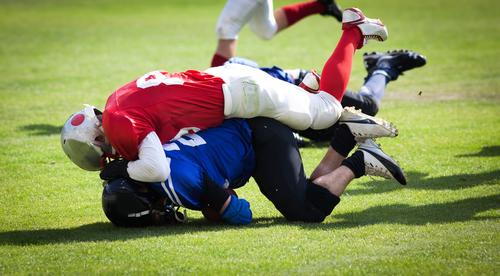 Dangers of Concussion
Dangers of Concussion
Thanksgiving weekend is football time for many people... sometimes watching, sometimes playing. If you're playing, play safe! There’s no doubt about it: sports are a great way for kids and teens to stay healthy while learning important team-building skills. But there are risks to pushing the limits of speed, strength, and endurance. And athletes who push the limits sometimes don’t recognize their own limitations—especially when they’ve had a concussion. That’s where you come in. It’s up to you to help recognize concussion and make the call to pull an athlete off of the field if you think an athlete might have one. Playing with a concussion can lead to long-term problems. It can even be fatal.
What Is a Concussion?
A bump, blow, or jolt to the head can cause a concussion, a type of traumatic brain injury. Concussions can also occur from a blow to the body that causes the head and brain to move rapidly back and forth—literally causing the brain to bounce around or twist within the skull. This sudden movement of the brain causes stretching, damaging the cells and creating chemical changes in the brain. Once these changes occur, the brain is more vulnerable to further injury and sensitive to any increased stress until it fully recovers.
Unlike a broken ankle, or other injuries you can feel with your hands, or see on an x-ray, a concussion is a disruption of how the brain works. It is not a “bruise to the brain.”
How Can I Recognize a Possible Concussion?
On the football field,concussions can result from a fall or from players colliding with each other, the ground,or an obstacle, such as a goalpost. Even a “ding,” “getting your bell rung,” or what seems to be a mild bump or blow to the head can be serious. Sometimes people wrongly believe that it shows strength and incourage to play while injured. Discourage others from pressuring injured athletes to play. Some athletes may also try to hide their symptoms. Don’t let your athlete convince you that he is “just fine” or that he can “tough it out.” Emphasize to athletes and parents that playing with a concussion is dangerous. You are on the front line in identifying an athlete with a suspected concussion. You know your kids well and can recognize when something is off—even when the player doesn’t know it or doesn’t want to admit it.
